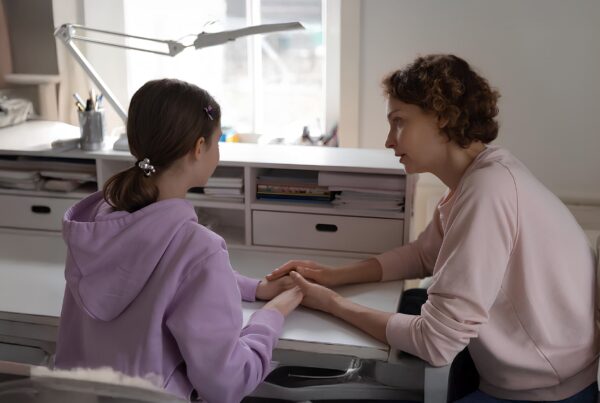Mother’s or Father’s Day with a terminal illness
Just thinking about this sad situation is painful, none of us want to think of children having a last Mother’s or Father’s Day, knowing the sadness and grief ahead of them without them.
Because it is so hard to know what to do and because we naturally want to protect children from the realities of dying and death, parents may miss this opportunity to make Mother’s or Father’s Day really memorable and one the children will remember with pride because of all the little things they did for their mummy.

Talking to children about dying
Anyone who has experienced a parent dying when they were young will remember what it was like not being told what was happening and the regrets of not knowing. When children aren’t told what is happening in their mum’s life they may sadly miss doing simple but extra special things for her. The last Mother’s or Father’s Day card they can write, home made or not. A chocolate bar, finding out their favourite chocolate bar. Perhaps a photograph taken together. Learning from them how they felt when they were born.
These memories can last a life time and be a source of great comfort in grief. A useful suggestion from the children’s charity Winston’s Wish is to think of talking to children like doing a jigsaw. Start with one or two key pieces of information that fit and make sense for the child. Follow the child’s lead and gradually add more pieces of information, so that as time passes and their understanding grows, they ask new questions. This can guide parents for when their children are ready for more information and to take on the ‘bigger picture’.
We also need to be aware that children learn most about grief from watching the adults around them. Children will understand it’s a serious situation when they know a parent is not expected to live much longer. However it’s only after the death that children will experience the grief of bereavement. It is now understood and accepted that children manage the feeling of grief by seemingly dipping in and out – sad one minute, then happy the next. This same behaviour is how they may manage when a parent is dying. Child support organisations talk about this as ‘puddle-jumping’, which is very different to the ongoing wave of grief that adult experience. Because children can be sad one minute and happy the next, adults may think they are not affected. But those of us involved in supporting grieving children are aware that children need a break from their sad feelings and will switch into doing something positive and fun to protect themselves from being overwhelmed by powerful feelings. Like adults, children at different ages will respond very differently in sad situations. There is no right or wrong way to grieve. It is OK to cry and it is just as OK not to.
It is now widely accepted that the most helpful way for a child to manage the death of someone important to them is not to forget them, but to find a healthy way to take the memory of that person with them into their adult life.

by Jenni Thomas
RSF FAMILY SUPPORT ADVISOR



